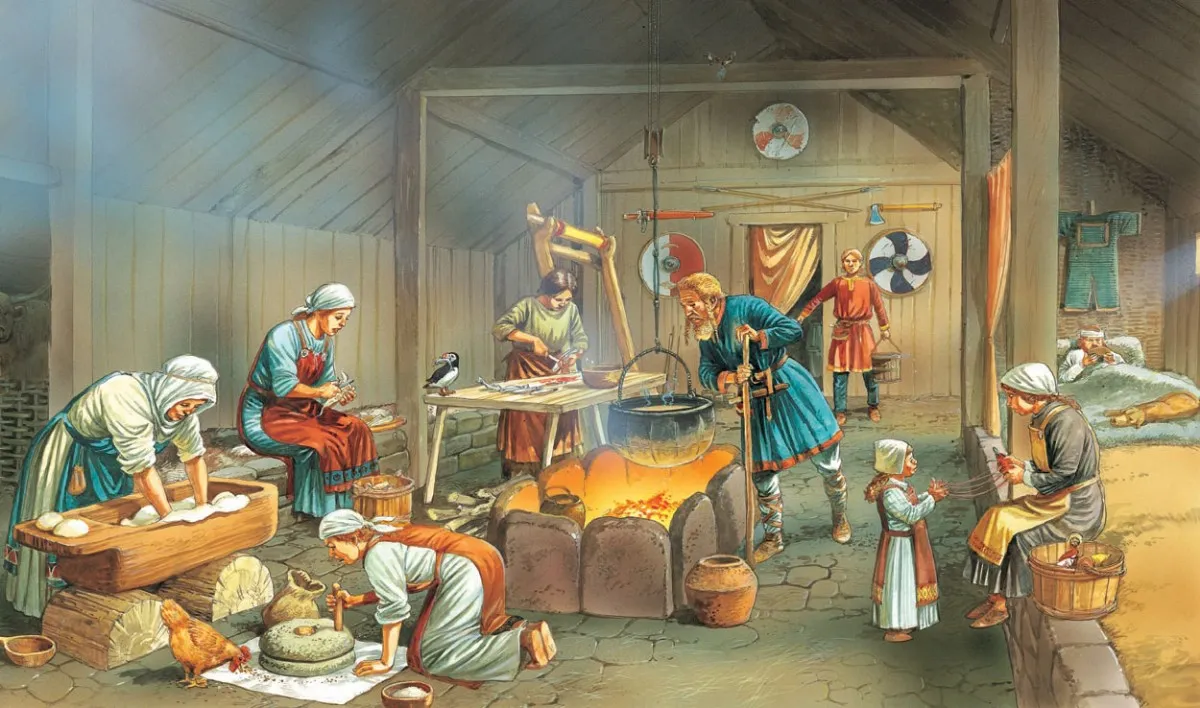The Viking lifestyle was one of hard work and constant activity. There was no time for idleness or laziness. Even children were expected to contribute to the family’s chores.
Viking homes were simple, functional, and often quite small. The main room, called the hall, served as both a living and dining area. It was also where the family slept, on straw-filled mattresses laid out on platforms along the walls.
The Vikings were a very clean people, and hygiene was important to them. They bathed regularly, using soap made from ashes and animal fat. Their clothes were also clean and well-mended.
The Vikings believed in gods and goddesses, and they worshipped them through sacrifices of animals and food. They also believed in magic and had many superstitions about good and bad luck omens.
Viking society was divided into three classes: nobles, freemen, and slaves. The nobles were the wealthy landowners who had the most power. Freemen were farmers or craftsmen who owned their own land or shops. Slaves were captured enemies or criminals who did all the hard labor on Viking farms and in Viking homes.
The culture of the Vikings was a rich and varied one, with many different traditions and customs. The Vikings were a people who were very close to nature, and they believed in living life to the fullest. The Viking lifestyle was based around the three main pillars of their society: family, community, and faith.
Family was very important to the Vikings, and they believed that it was the foundation of their society. The community was also very important to them, as it was what helped them to survive and thrive in the harsh conditions of the Nordic countries. Faith was also a very important part of Viking culture, as they believed in many different gods and goddesses.
Viking culture placed a great emphasis on storytelling, music, and art. They believed that these things helped to bring people together and make them feel closer to each other. Storytelling was a way for people to share their experiences and knowledge with others, while music and art were ways for people to express themselves creatively.
The Vikings were also a very practical people, and they believed in using whatever resources they had available to them. They were known for their skill in crafting weapons and tools, as well as their ability to build sturdy ships. Their practicality extended into all aspects of their lives, including their food production and farming methods.
